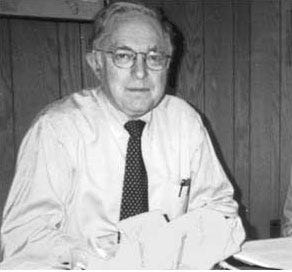By Richard Luthmann
In a gripping episode of The Unknown Podcast, Jill Jones Soderman, a psychoanalyst and Founder and Executive Director of the Foundation for Child Victims of the Family Courts (FCVFC), unveiled shocking insights about Dr. Richard Gardner, the psychiatrist who developed the contentious concept of Parental Alienation Syndrome (PAS). Soderman’s revelations included details from Gardner’s autopsy and his highly criticized theories, which continue to influence family court decisions despite being widely discredited.
“Gardner wasn’t just a controversial figure; he was deeply disturbed,” Soderman said.
She described Gardner’s views as “perverted and distorted,” pointing to his assertion that children are “sexual beings from birth” and his promotion of early childhood pregnancies to bolster the white population.
“This pseudoscience was the foundation for PAS, a tool used to discredit allegations of child abuse,” she added.
Gardner’s theories gained traction in the 1980s and 1990s, often helping parents accused of abuse retain custody. Soderman explained that Gardner initially developed PAS as a defense mechanism for his clients—many of whom faced incest allegations.
“It began as a hired-gun tactic,” she said, “but it evolved into a legal doctrine weaponized against protective parents.”
Explosive Revelations About Gardner’s Death
Soderman also delved into Gardner’s 2003 death, officially ruled a suicide. Gardner stabbed himself multiple times in the chest and neck—a method Soderman described as “brutal and deeply symbolic.”
She revealed having access to non-public autopsy documents and Gardner’s suicide note but declined to disclose specific details.
“He had a moment of clarity,” she said. “He realized the immense harm his theories caused—millions of children placed in abusive homes and families destroyed.”
Host Michael Volpe questioned the plausibility of Gardner’s death being a suicide, citing its violent nature.
However, Soderman countered, “This wasn’t about drawing attention; it was about punishing himself for the damage he caused.”
She attributed his actions to overwhelming guilt and a personal epiphany about the destruction wrought by his work.
Debating Parental Alienation Syndrome
PAS remains a polarizing topic in family law. Proponents argue it addresses legitimate cases of one parent turning a child against the other. Critics, including Volpe, dismiss it as “junk science” lacking clinical validity.
“PAS is whatever the accuser wants it to be,” Volpe said. “It’s subjective and often used to silence abuse claims.”
Soderman agreed that the courts misuse parental alienation but maintained that the concept of parental alienation—distinct from Gardner’s PAS—has clinical merit when properly diagnosed.
“Pathological parenting exists and can harm children,” she said. “But the legal system has weaponized this term for financial gain, funneling billions into a cottage industry of court appointees and experts.”
Co-host Richard Luthmann offered a more nuanced perspective, acknowledging Gardner’s racist and pedophilic underpinnings while considering the scientific exploration of parental alienation.
“Even though Gardner’s motives were abhorrent, we should examine whether elements of parental alienation have diagnostic and legal validity,” Luthmann said.
The Financial Motive Behind PA
Soderman emphasized that Parental Alienation’s persistence in family courts is tied to financial incentives. Under Title IV-D and IV-E of the Social Security Act, federal funds flow to states for child custody interventions.
“This is a financial bonanza,” Soderman said. “Judges, lawyers, and court-appointed experts thrive on prolonged custody battles, often to the detriment of children.”
She cited cases where protective parents lost custody to abusers, facilitated by court-appointed guardians and therapists who dismissed credible abuse claims.
“The courts ignore expert opinions against abusive parents,” she said. “Instead, they rely on Parental Alienation to justify devastating decisions.”
Volpe and Luthmann highlighted tragic outcomes tied to PAS, including hundreds of child deaths in custody disputes.
“The courts prioritize cash flow over child welfare,” Volpe said. “This system is broken.”
Gardner’s Enduring Influence
Despite Gardner’s death, his theories cast a long shadow over family courts. PAS, though rejected by the American Psychiatric Association and the World Health Organization, continues to surface in custody disputes.
“Gardner’s ideas are pseudoscientific at best and dangerous at worst,” Soderman said. “They strip children of their voices, treating them as empty vessels manipulated by one parent.”
Soderman called for systemic reform, urging courts to prioritize children’s welfare over legal and financial interests.
“The lack of accountability and oversight in these cases is destroying families,” she said. “We must dismantle the systems that perpetuate this harm.”
A Call to Action
Jill Jones Soderman’s appearance on this episode of The Unknown Podcast underscores the urgent need to scrutinize family court practices and the misuse of PAS. Soderman’s revelations about Gardner’s death and his controversial legacy offer a sobering reminder of the stakes involved.
As Volpe concluded, “The courts thrive on conflict, but it’s time to prioritize the well-being of children over the profits of a broken system.”


















Share this post